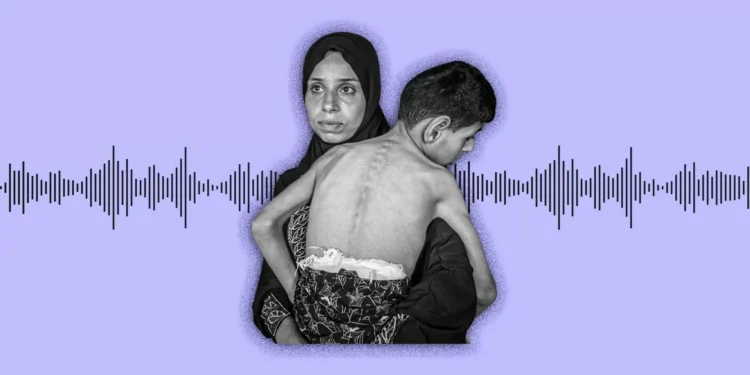The humanitarian crisis in Gaza has been a topic of concern for many years. The Palestinian territory has been under Israeli control for decades, and the ongoing conflict has resulted in severe consequences for the people living there. One of the most pressing issues facing Gaza today is the hunger crisis, which has been exacerbated by Israel’s war and aid restrictions. In this article, we will delve into the root causes of this crisis and shed light on the efforts being made by the International Rescue Committee (IRC) to alleviate the suffering of the people in Gaza.
The Gaza Strip is a densely populated area with limited resources and a fragile economy. The majority of its population relies on aid and humanitarian assistance to meet their basic needs. However, Israel’s blockade and restrictions on imports and exports have severely crippled the economy, making it difficult for the people of Gaza to access food and other essential goods. According to the United Nations, over 70% of the population in Gaza is food insecure, and more than half of them are in need of humanitarian assistance.
Bob Kitchen, the country director for the IRC in Palestine, has been working on the ground to provide aid and support to the people of Gaza. In an interview with The Intercept, Kitchen unpacked the dire situation in Gaza and the impact of Israel’s policies on the people. He stated, “The situation in Gaza is a purely manmade famine. It’s not a result of a natural disaster or a lack of resources. It’s a result of Israel’s ongoing blockade and restrictions on imports and exports.”
The blockade, which has been in place since 2007, has severely limited the movement of people and goods in and out of Gaza. This has had a devastating impact on the economy, with unemployment rates reaching a staggering 50% and the poverty rate at 53%. The lack of economic opportunities has led to a sharp decline in purchasing power, making it difficult for families to afford food and other basic necessities.
Moreover, Israel’s frequent military operations in Gaza have also worsened the situation. The constant bombings and destruction of infrastructure have left many families homeless and without a source of income. The IRC has been working tirelessly to provide emergency aid and shelter to those affected by the conflict. However, the restrictions on aid and the destruction of vital infrastructure have made their efforts more challenging.
Kitchen also highlighted the impact of the restrictions on the agricultural sector in Gaza. He stated, “Gaza used to be self-sufficient in food production, but due to the blockade, farmers are unable to access their land and sell their produce. This has not only affected their livelihoods but has also contributed to the food shortage in Gaza.”
The IRC has been working to address the root causes of the hunger crisis in Gaza. They have been advocating for the lifting of the blockade and the easing of restrictions on imports and exports. They have also been supporting local farmers and providing them with the necessary tools and resources to increase their production. The IRC has also been working with local organizations to provide vocational training and create job opportunities for the youth in Gaza.
Despite the challenges, the IRC has been able to make a significant impact in Gaza. They have been providing food assistance to over 100,000 people every month and have reached thousands of families with emergency aid. They have also been working to improve access to clean water and sanitation, which is crucial in preventing the spread of diseases.
In conclusion, the hunger crisis in Gaza is a manmade disaster, and it is essential to address the root causes to find a sustainable solution. Israel’s war and aid restrictions have had a severe impact on the lives of the people in Gaza, and it is crucial for the international community to take action to alleviate their suffering. The efforts of organizations like the IRC are commendable, but more needs to be done to ensure that the people of Gaza have access to their basic human rights, including food and shelter. It is time for the world to come together and stand in solidarity with the people of Gaza and demand an end to the blockade and restrictions that are causing immense suffering. As Kitchen stated, “We cannot sit back and watch a whole population being starved to death. It is our responsibility to take action and make a difference.”






